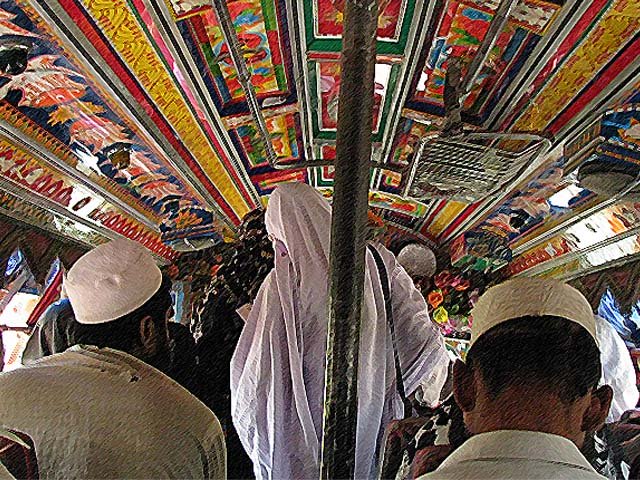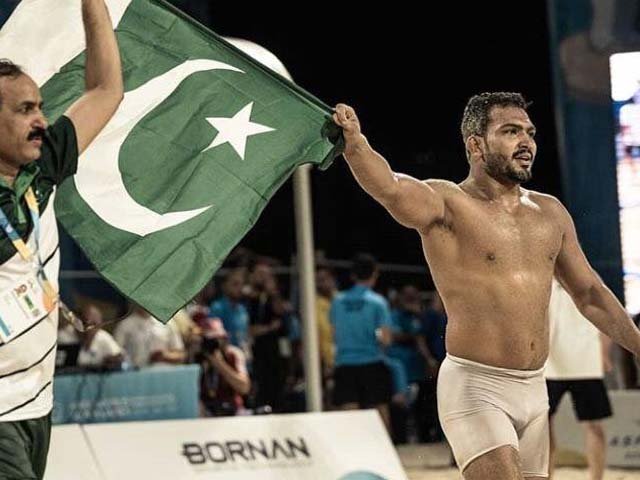
Dear TV channels, stop commercialising Islam in Ramazan
If there is one thing we have realised over the past few years in Pakistan, it is that religion sells.
Sawab, Rounaq Ramazan, Ramazan Hamara Emaan, Pakistanion ka Ramazan, Marhaba Ramazan, Subhan Ramazan, Ramazan Sharif, Bismillah Ramazan, Shan-e-Ramazan, Ishq Ramazan, Jashan-e-Ramazan, Mohabbat-e-Ramazan – the list is exhausting... and utterly monotonous.
These are some of the many special Ramazan shows that have been lined up to be aired on various TV channels during the holy month of Ramazan this year. Along with these shows, many channels have also come up with their signature game shows to lure in audiences.
Just like last time, nearly all news channels are planning to run shows where the hosts invite so-called religious scholars to discuss topics of religion and Islamic jurisprudence, recite naats between the show, cook different delicacies for iftar and interact with viewers by live telephone calls or messages.
And so, this year too, just like its predecessors, the shenanigans ensue.
I, along with many of my sane-minded friends, don’t think these shows serve any purpose other than wasting people’s time and distracting them from the real essence of this month, which is prayers and getting closer to Allah (SWT).
And come to think of it, what use is all of this, except for becoming a money-making machine for media conglomerates?
So here we are, with a gazillion channels simultaneously airing similar shows with extremely similar content; I am sure this must be a new world record or something. The pattern is the same. Every show invites religious scholars and also tries to hire popular faces to conduct these Ramazan shows in order to increase their viewership ratings. The religious scholars appearing as guests on portray themselves as the real torch bearers of Islam, but in reality, many of them are charging these channels a heavy fee to come on television and share their knowledge – which is often bereft of substance.
Hypocrisy is rampant. And faith is on sale.
The interest shown by channels in preparing these shows in the month of Ramazan are indications that just like shopkeepers and owners of food outlets, channels are also trying to cash in on the holy month, in order to increase their viewership and revenue. If there is one thing we have realised over the past few years in Pakistan, it is that religion sells. And in Ramazan, it sells galore.
Although long Ramazan transmissions prove beneficial for channels, I am of the view that they are a big distraction for viewers, who instead of praying or completing their chores, waste their time watching television and then run to complete their tasks with minimal time remaining for Iftar. In addition to the cons, these shows often create a sense of deprivation among viewers belonging to the middle or lower income strata of society, who cannot afford expensive food and clothing.
I feel Ramazan shows create confusion in the minds of the public, since multiple and conflicting solutions are provided and suggested by a multitude of scholars. In Pakistan, we have a huge number of religious scholars emerging from different schools of thoughts, but unfortunately, every religious scholar interprets the teachings of Islam in their own way.
For instance, I have earnestly been searching for a valid answer, but so far I have been unable to get a unanimous consensus for my query. My question is whether we are allowed to use an inhaler while fasting? Unfortunately, I get different answers from different religious scholars every time. Some say the use of an inhaler is allowed, whereas others say it is prohibited. Almost every show has failed to provide me with a concrete response.
All these differences in opinion begin surfacing because the concept of Ijma (consensus in a society) is ceasing to exist, mainly due to the reason that everyone is more interested in highlighting their personality, their brand of Islam, and their core values.
During Ramazan shows, male and female hosts also undergo drastic changes in their appearances. Female anchors start wearing long sleeve shirts and begin covering their heads. I am not against women covering their heads, but why do it only for Ramazan and just for your show? If hijab is compulsory, then why do these hosts not cover their heads all year around? Male hosts also try to grow beards and wear shalwar kameez or sherwanis, although this type of dressing has no correlation with Islam.
The core purpose of these shows now is to earn money for channels instead of inculcating the true spirit of religion amongst the viewers. Channels earn huge revenues by airing long advertisements in between shows. Various brands of cell phones, clothing and many other items gain popularity because of them.
My request to all the news channels is that Ramazan is a month to follow the commands of Allah, to purify our souls, not only for one month, but to keep it that way for the entire year. Let’s not make it commercial and mar is with the dirt of capitalism.




COMMENTS (26)
Comments are moderated and generally will be posted if they are on-topic and not abusive.
For more information, please see our Comments FAQ